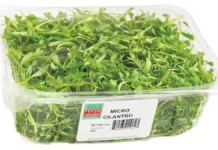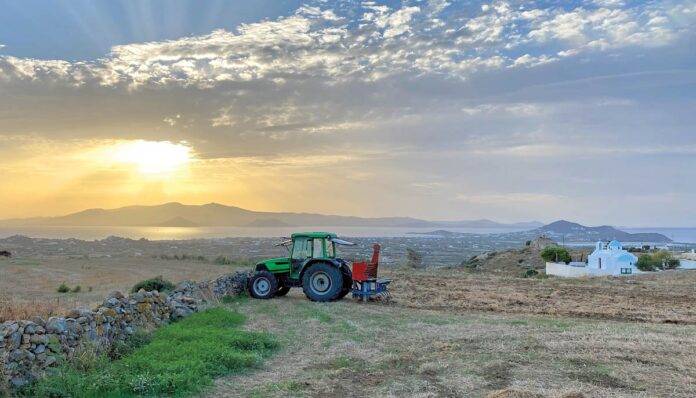
Hard to believe, but it’s already August! I spent the entire month of July in my homeland of Greece, where I was hard at work creating and sourcing the best new products for my CPG lines and for Loi Estiatorio.
I visited the farms, the fields, and the factories, and saw the entirety of the production process for many products – PDO (Protected Designation of Origin), PGI (Protected Geographical Indication), and otherwise.
Why do PDO and PGI certifications matter?
Since PDO and PGI certifications respectively have much (or everything) to do with the specific place where they are made, the products themselves are representative of their respective country/geography of origin on the world’s stage.
It is important to note that other countries outside the European Union (EU) are allowed to register PDO and PGI products with the EU, as the certifications and logos are recognized world-wide.
In this current global economy, with chefs and consumers looking to create authentic culinary experiences reflective of specific cuisines, PDO and PGI products are essential components.
Imagine going to a nice restaurant, perhaps one that specializes in Mediterranean cuisine. There are some Italian dishes on the menu, some Greek dishes, and some Spanish dishes…you order a salad, which includes Feta cheese, and upon arrival at the table, you can immediately understand that while the substance on the salad is a white cheese, it is definitely not feta…
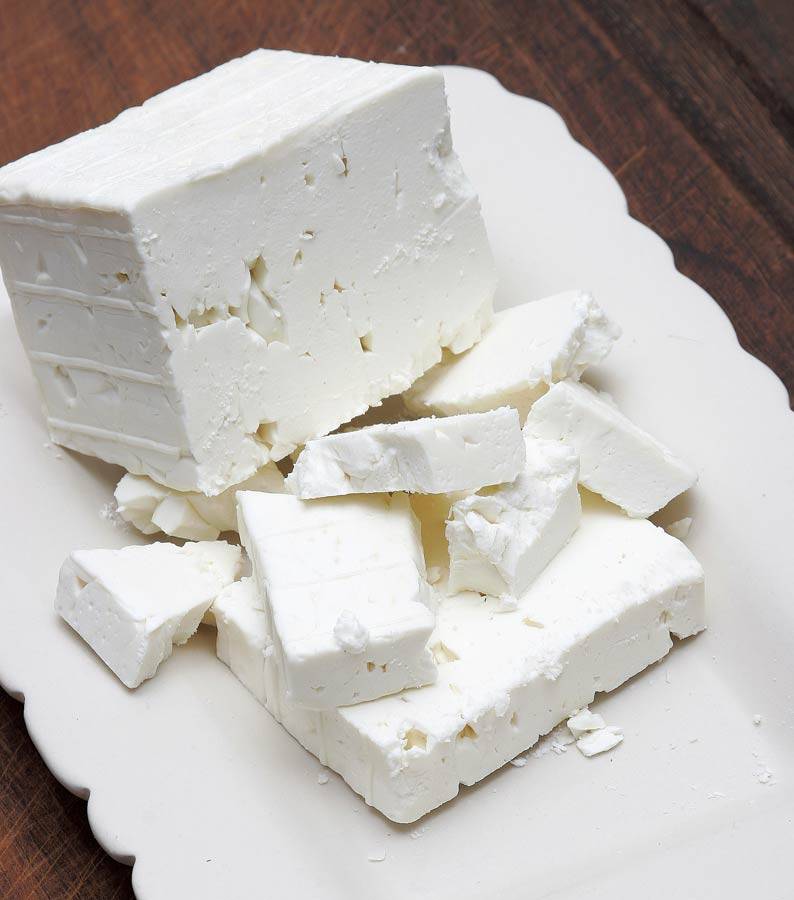
As someone who knows what real Greek Feta is, you’re disappointed, and perhaps even a bit mad at the misrepresentation by the establishment.
However, what about the uninformed consumer? Now they think that they know what Greek Feta is, when in fact, the cheese they tasted may have come from Bulgaria, Denmark, or Wisconsin even! And worse than that? It doesn’t taste at all like real Greek Feta, so now they know even less than they did before!
The Feat of Feta
Feta cheese was registered as a PDO product in 2002 through the European Commission, fully supported by over 6,000 years of history, including mentions in Homer’s Odyssey! Nevertheless, there have been many imposter cheeses over the years, most recently out of Denmark.
Over three years ago, the European Commission brought a case against Denmark to the Court of Justice of the European Union (EU), on behalf of both Greece and Cyprus, stating that Denmark violated European law by allowing Danish companies to sell cheese called “feta” outside of the EU.
Finally, in July 2022, the European Court officially announced that the term “feta” can only be used for cheese made in Greece according to strict guidelines, as it is a PDO product.
Denmark admitted that their cheeses were labeled as “feta,” but argued that selling the products to countries outside of the EU did not violate the law, as it did not mention exports. The EU’s highest court did not support their argument, and found that exports are also included in PDO laws.
This was a major victory for Feta producers all over Greece, including Epiros Dairy, who produce one of the best Feta cheeses in the region of Epiros, and export their products all over the world.
What exactly are PDO and PGI certifications?
Let’s start with PDO and what it means – according to the European Commission, product names registered as PDO are those that have the strongest links to the place in which they are made.
- Products: food, agricultural products and wines.
- Specifications: Every part of the production, processing and preparation process must take place in the specific region. For wines, this means that the grapes have to come exclusively from the geographical area where the wine is made.
- Label: mandatory for food and agricultural products, optional for wine.
- Example: Kalamata olive oil PDO is entirely produced in the region of Kalamata in Greece, using olive varieties from that area.
On the other hand, according to the European Commission, the PGI certification emphasizes the relationship between the specific geographic region and the name of the product, where a particular quality, reputation or other characteristic is essentially attributable to its geographical origin.
- Products: food, agricultural products and wines.
- Specifications: For most products, at least one of the stages of production, processing or preparation takes place in the region. In the case of wine, this means that at least 85% of the grapes used have to come exclusively from the geographical area where the wine is actually made.
- Label: mandatory for food, agricultural products, optional for wines.
- Example: Giant elephant beans from Prespes, Florina called Fasolia Gigantes Elefantes Prespon Florinas P.G.I are produced by Pelekanos, a bean farmers cooperative from Prespes National Park. These beans are distinguished for their special flavor characteristics, being cultivated in the fertile soils and microclimate of the region Florina.
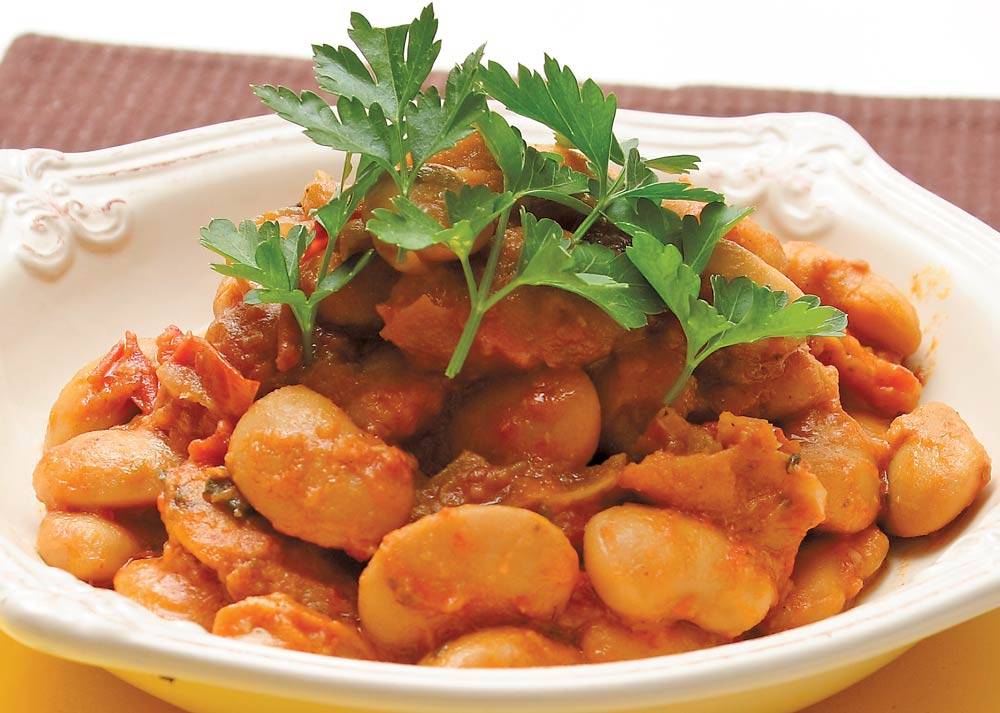
The Beauty of the Bean
While beans grow all over the world, Greece’s unique soil profile and variety of microclimates has created the perfect storm for incredible PGI beans, in particular in the area of Prespes in northern Greece. The Prespa PGI Giant Elephant Beans and the Prespa Florina PGI Megasperma Beans are both known for their thin skins, creamy texture when cooked, and delightful chestnut-like flavor, thanks to where they were grown and how they were cultivated.
During my time in Greece last month, I visited the 3Alfa premises, who are the number one beans, rice, and pulse company in Greece. I hadn’t seen Ms. Olga Kourea, 3Alfa’s Director of Marketing, in over fifteen years, since we had worked on a philanthropic endeavor to help the homeless through the Municipality of Athens.
Ms Kourea and I spoke about how no one used to care about where the beans came from specifically, because we knew that they were good – it was obvious to everyone, so no one thought about it. She then told me how nowadays, transparency and traceability are highly valued by consumers (in both retail and wholesale), and people want to know where their food comes from.
I was so impressed by how advanced 3Alfa’s business has become – they are able to trace their product from seed to bag – they know from what field, which farmers, and which harvest each bean comes from – amazing!
Product Appreciation as a Kid
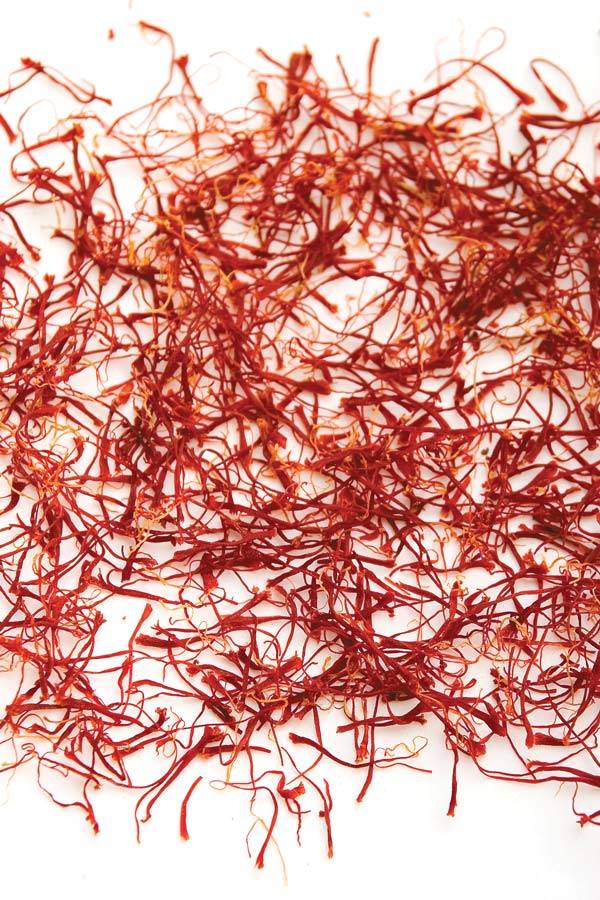
Growing up, it wasn’t about labels or certifications – it was about agricultural pride. During my father’s travels for work, he would often come home with different treats for the family – sometimes beans from Northern Greece, other times these unbelievable apples from Zagora, and sometimes he would bring us the most incredible Krokos Kozanis – Greek saffron – which my grandmother taught me how to cook with. My father always made sure that we had Mastiha (mastic resin) from Xios at home, because it was a wonderful homeopathic remedy for almost all digestive issues, which he learned from his father – my Papou (grandfather in Greek).
I remember on a special trip with my father when I first encountered potatoes from Naxos – he went on and on about them, talking about this small island and all of the amazing food they produce. I must have been 8 or 9 years old, and food was already so important to me – but I couldn’t comprehend how those potatoes could be any different from the ones we grew at home…until I tasted them.
It’s not that you could put your finger on a particular quality they had that made them so much better than our homegrown potatoes – it was the overall experience when you ate them. They were that much creamier, that much smoother, their flavor was almost concentrated and heightened….the proof was in the potato.
Product Appreciation Today
Nowadays, I know that all of those products my father introduced us to were indeed special – because of where they were grown, how they were harvested, or how they were made – as all of them now have PDO or PGI status. But, at the time, I just knew that they were good and I liked them….
With all of the obstacles we face in the culinary industry related to rising costs, shrinking quantities, shipping delays, and supply chain issues, it’s easy to think about making the choice to swap out your PDO and/or PGI products for something that’s easier to source.
But remember, these products are certified for a reason – there is a special, unique quality to each and every one for which there is no substitute.





















